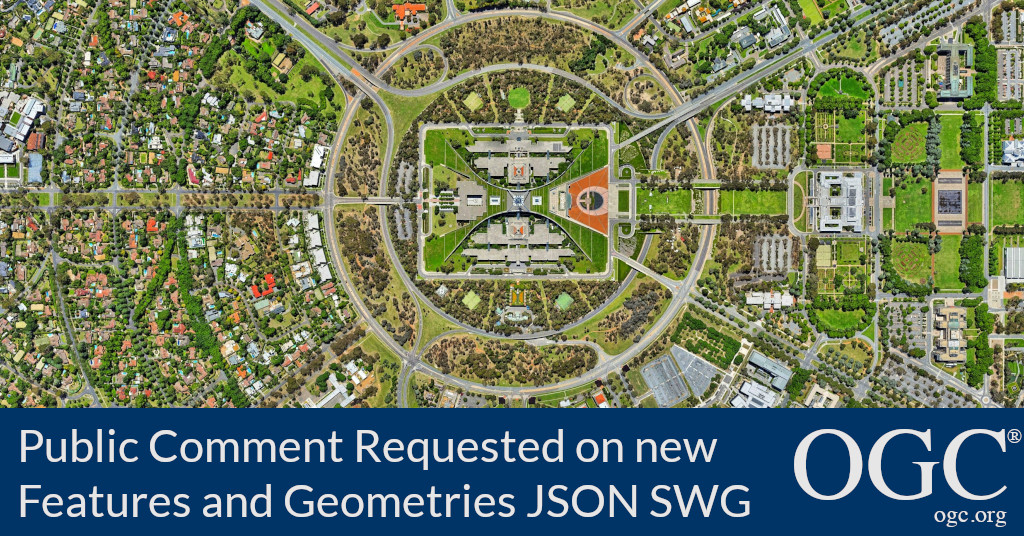New OGC Working Group will develop a JSON encoding for geospatial feature data to support additional concepts that are important for the wider geospatial community and the OGC API standards.

The Open Geospatial Consortium (OGC) seeks public comment on the draft charter for the new OGC Features and Geometries JSON Standards Working Group (SWG). Comments are due by the 11th of January, 2021.
The OGC Features and Geometries JSON SWG is chartered to develop a JSON encoding for geospatial feature data. This encoding is intended to build upon the foundational OGC standards (such as Simple Features), be inclusive of other geospatial JSON encodings (such as GeoJSON), and support content delivery per the OGC API family of standards.
More specifically, OGC Features and Geometries JSON will build on the widely used GeoJSON standard and extend it with minimal extensions to support additional concepts that are important for the wider geospatial community and the OGC API standards.
JSON as an encoding format for geospatial data continues to grow in popularity thanks to its lightweight, simple syntax, and clear human (and machine) readability. GeoJSON has become a very popular encoding, but has limitations that prevent its use in some use cases. At a minimum, a more-inclusive JSON encoding for geospatial feature data should:
- include the ability to use Coordinate Reference Systems (CRSs) other than WGS84,
- support other non-Euclidean metrics, in particular ellipsoidal metrics,
- support more geometry types, in particular solids, and
- provide guidance on how to represent feature properties, including relation to time, consistent with the General Feature Model in JSON.
Given the popularity of GeoJSON, the SWG will ensure that OGC Features and Geometries JSON will be specified as a superset of GeoJSON so that valid GeoJSON is also valid OGC Features and Geometries JSON.
The draft charter for the Features and Geometries JSON Standards Working Group is available for review and comment on the OGC Portal. Comments are due by the 11th of January, 2021, and should be submitted via the method outlined on the Features and Geometries JSON SWG Draft Charter public comment request page.
About OGC
The Open Geospatial Consortium (OGC) is an international consortium of more than 500 businesses, government agencies, research organizations, and universities driven to make geospatial (location) information and services FAIR – Findable, Accessible, Interoperable, and Reusable.
OGC's member-driven consensus process creates royalty free, publicly available geospatial standards. Existing at the cutting edge, OGC actively analyzes and anticipates emerging tech trends, and runs an agile, collaborative Research and Development (R&D) lab that builds and tests innovative prototype solutions to members' use cases.
OGC members together form a global forum of experts and communities that use location to connect people with technology and improve decision-making at all levels. OGC is committed to creating a sustainable future for us, our children, and future generations.
Visit ogc.org for more info on our work.
“
